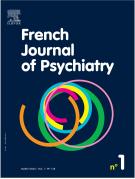Intensive supportive ambulatory aftercare may increase adherence to treatment and decrease depressive symptoms in patients after a suicide attempt - 19/08/20

Cet article a été publié dans un numéro de la revue, cliquez ici pour y accéder
Highlights |
• | Patients present a high risk for relapse during the post-discharge period of a suicide attempt. |
• | Individualized, proactive, intensive psychosocial follow-up (IPC) provided by a psychiatric team, assuring continuity of care maintaining substantial personalized contacts after discharge, could significantly reduce the levels of depressive symptoms in suicide attempters patients after discharge. |
• | IPC seems to improve compliance with treatment and slightly decrease the number of repeat SA. |
Summary |
Objectives |
Patients who survive a suicide attempt present an increased risk of relapse during the three months after discharge from a hospital, referred to herein as the post-discharge period. Developing and assessing the efficacy and safety of methods that reduce the risk of relapse in the post-discharge period is critical for professionals in the field of suicide prevention. This study aimed to compare the efficacy of a new Intensive Psychosocial Care (IPC) program after discharge for a suicide attempt with a Standard Care Program (SCP) in non-hospitalized patients.
Methods |
We conducted a open-label prospective trial to compare the outcome of patients who have attempted suicide for a duration of 6 months according to whether they were included in care program group IPC or SCP after discharge from the emergency department.
Results |
Using the Beck Depression Inventory short-form (BDI-SF), the IPC program was significantly associated with both a decrease of the total score of the scale at 6th month, and a trend towards a decline in the time lag between discharge and the improvement of depressive symptoms. When compared to SPC, patients receiving the IPC had also a lower drop-out rate (31% versus 43% in the 6th month) and a higher adherence to treatment until the 3rd month (56% versus 41.7%). Median time to reattempt was 83.7 [95%CI: 45.8–121.7] days for IPC as compared to 75.6 [95%CI: 38.8–112.4] days for SCP, respectively.
Conclusions |
Personalized follow-up with close contacts by the same caregivers as those who initially assessed the patient in the emergency room improved adherence to care and reduced depressive symptoms more intensely and faster after a suicide attempt.
Le texte complet de cet article est disponible en PDF.Keywords : Suicide, Attempted-suicide, Self-injurious behavior, Suicidal ideation, Depressive disorder, Prevention, Ambulatory care, Social support
Plan
Bienvenue sur EM-consulte, la référence des professionnels de santé.
L’accès au texte intégral de cet article nécessite un abonnement.
Déjà abonné à cette revue ?

